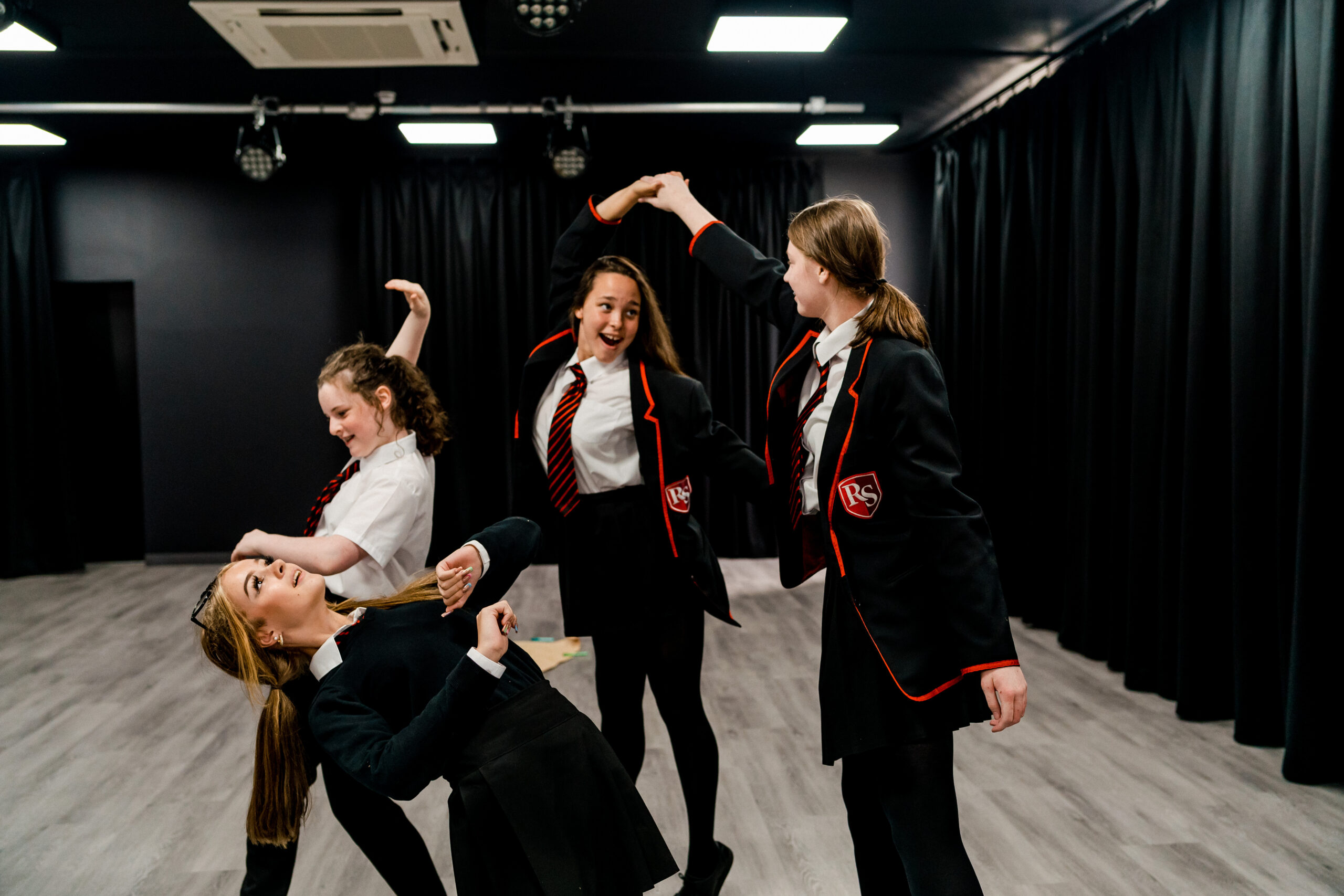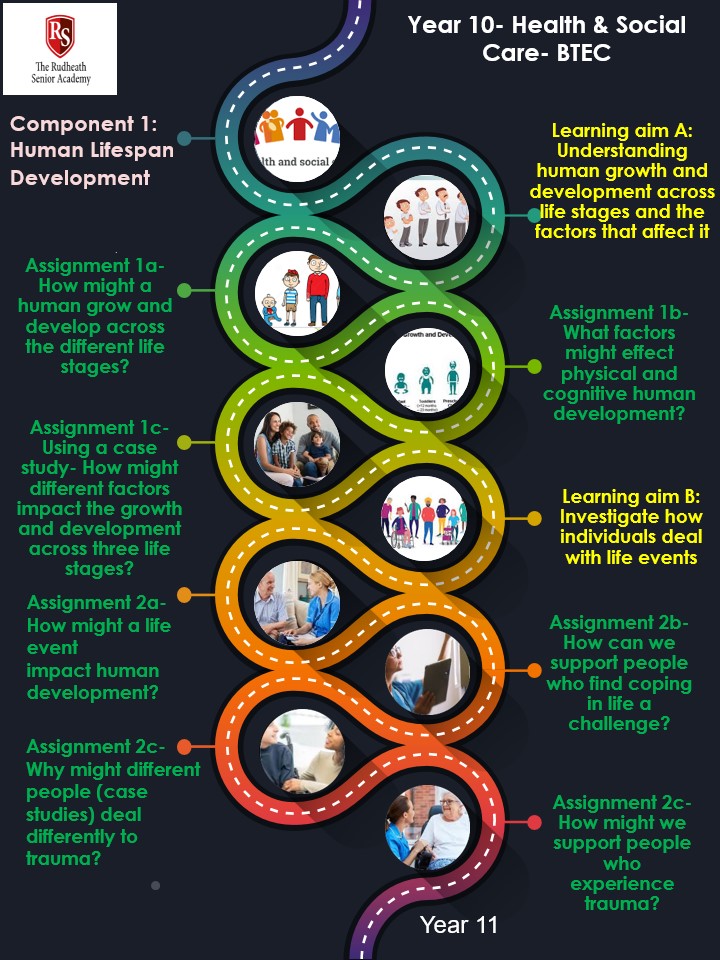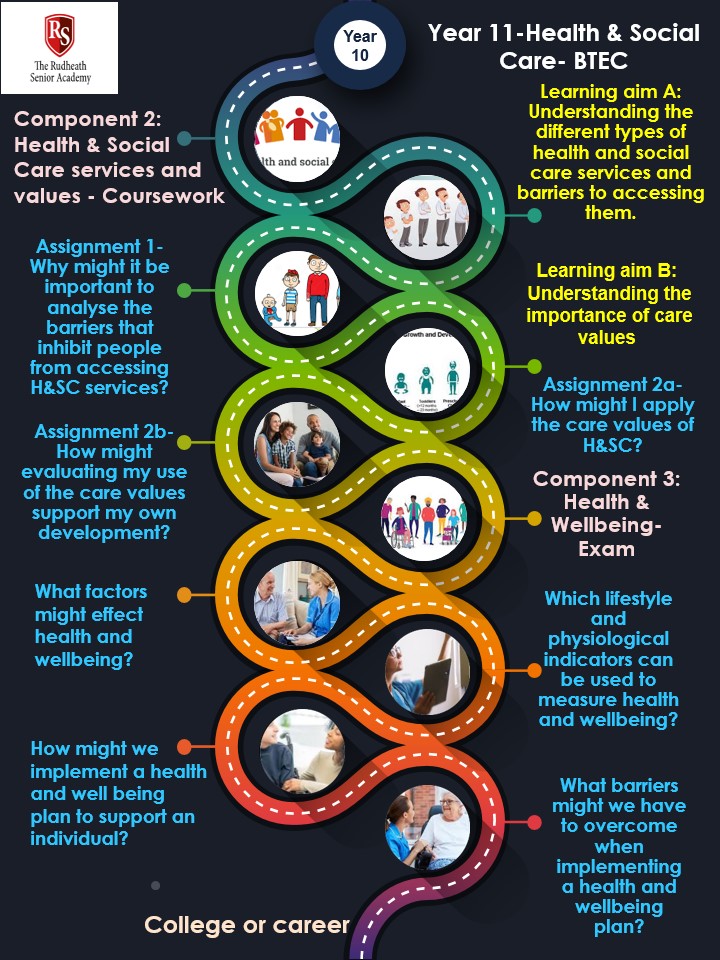
Health and Social Care
Students will investigate how, in real situations, human development is affected by different factors and that people deal differently with life events. They will also study and explore practically, health and social care services and how they meet the needs of real service users. They also develop skills in applying care values.
More than 3 million people work in the health and social care sector and locally there are many employment opportunities within this sector.
In addition to preparing our pupils for a career is the Health and Social industry, the curriculum is designed to give pupils’:
- An insight into some aspects of the health and social care environment, ranging from how the human develops from birth to death to different types of support that might be used.
- An understanding of the care values at the heart of the health and social care sector.
- An opportunity to develop into educated citizens and contribute to society in a positive way.
“There is no greater joy nor greater reward than to make a fundamental difference in someone’s life.” – Mary Rose McGeady
The BTEC Level 1/2 Technical Award in Health & Social Care is sequenced to allow learners to firstly learn about human development, health and wellbeing through experiencing practical scenarios linked to the learning aims. Components 1 and 2 are assessed through coursework. The curriculum concludes in year 11 with an exam, component 3, which assesses the holistic understanding of Health and Social Care Services and values. The exam builds on the knowledge developed in components 1 and 2.
YEAR 1
Component 1 – Human Lifespan Development – assessed via coursework.
YEAR 2
Component 2 – Health and Social Care Services and Values – assessed via coursework.
Component 3 – Health and Wellbeing – assessed via an exam.
Research suggests that interactive lessons that allow pupils opportunities to listen, argue and justify certain points are the most effective. Lessons are planned to offer inclusive learning opportunities to all. Lessons are differentiated to meet each learners needs and are well supported by learning environments that offer both support and challenge.
Lessons follow a set pattern, with pupils beginning each lesson with a knowledge recall- this aims to consolidate prior knowledge and ensure that important information is retained. Lessons then include a wide variety of resources including real life case studies that students are encouraged to analyse and evaluate. Video links are prepared to allow students to see a breadth of different practices. Lessons close with a reflection allowing students to consolidate the information learned.
Formative assessment
Over the two-year course, a range of opportunities are built in for formative assessment and knowledge is checked and reviewed each lesson using knowledge recall and the use of knowledge organisers. There are regular book assessments and feedback is given to longer answered questions at least once in every two-week cycle. To prepare learners for the exam in year 11, exam questions and criteria-based questioning are assessed also.
Summative assessment
To assess Components 1 and 2, pupils will be given two written tasks set and moderated by Pearson exam board. They will be given a case study and will assess an individual’s health and wellbeing, drawing on their understanding of life events from Component 1. They will design a health and wellbeing improvement plan that draws on their knowledge of services and care values from Component 2.
Component 3 is assessed via an external exam. To prepare, pupils study the factors that affect health and wellbeing, learn about physiological and lifestyle indicators, and person-centred approaches to make recommendations and actions to improve health and wellbeing. The external assessment takes the form of an examination taken under supervised conditions, which is then marked, and a grade awarded by Pearson.
Students will receive 1 piece of homework per fortnight, the focus being on checking knowledge and understanding of the key BTEC Health and Social care learning aims taught that week. This will prepare students for internal or external (exam) assessment or. Homework will be set in class for completion in students’ homework books but will also be available via Microsoft Teams.
Enrichment opportunities are embedded into the curriculum, offering learners a broader experience of Health & Social Care within and outside of the academy. Learners will be given the opportunity to see how their theoretical health and social care knowledge can be applied in real life situations by talks from guest speakers. Visits to social care settings will also be arranged, enabling learners to gain first-hand experience. At RSA, we aim for all learners to be given these opportunities.
The choices that learners can make post-16 will depend on their overall level of attainment and their performance in the qualification. Learners who achieve at Level 2 might consider progression to:
- A Levels as preparation for entry to higher education in a range of subjects.
- Study of a vocational qualification at Level 3, such as a BTEC National in Health and Social Care, which prepares learners to enter employment or apprenticeships, or to move on to higher education by studying a degree in the health or social care sector.
Students who advance in the Health and Social care sector often find employment in careers such as nursing, midwifery, social care, physiotherapy, or with public services such as the police or ambulance service.



